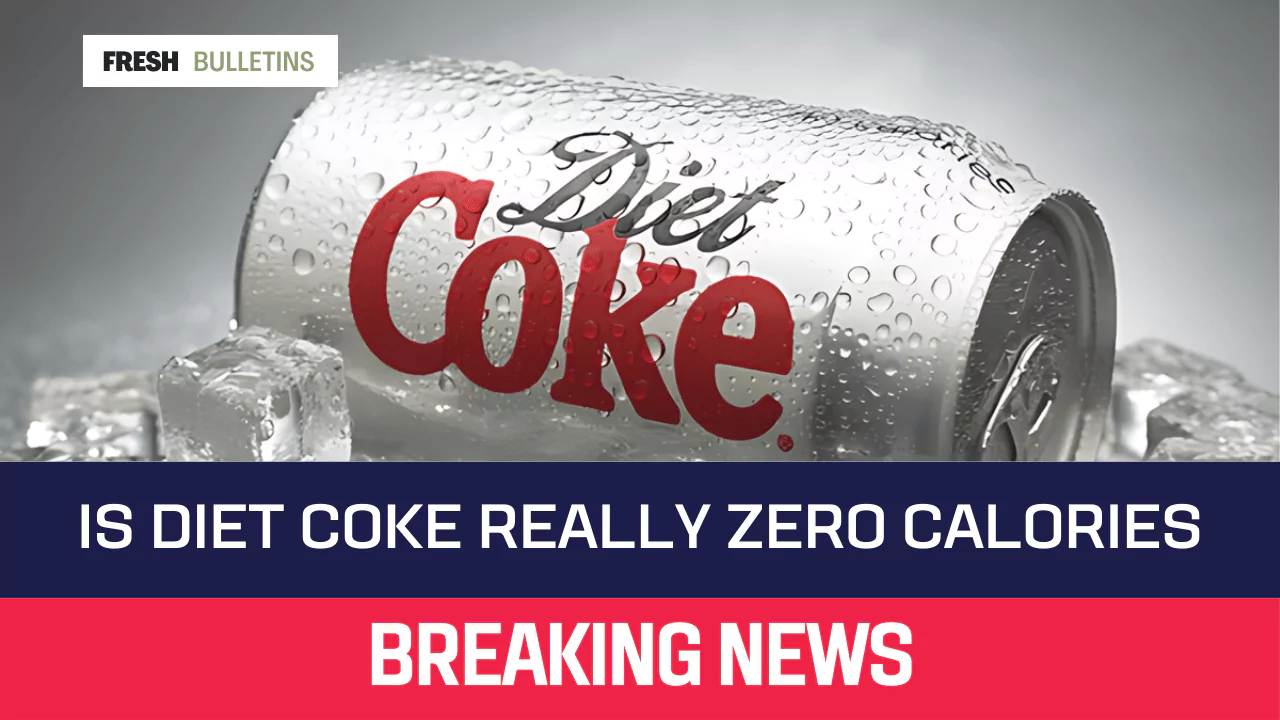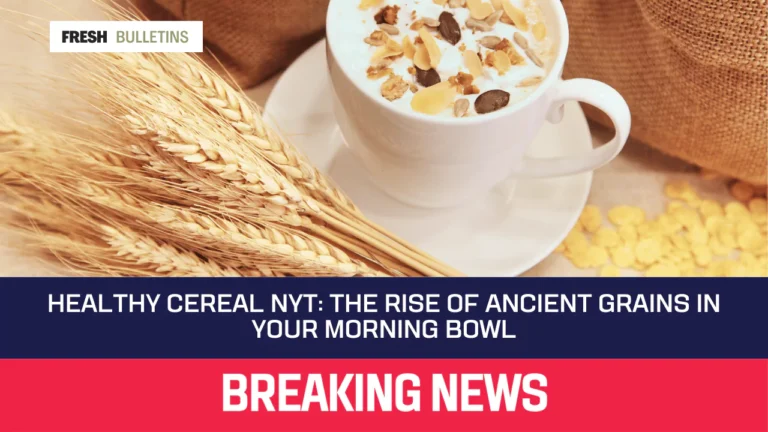Is Diet Coke Really Zero Calories? (Answered)
Yes, a 12-ounce (355-mL) serving of Diet Coke has zero calories. It also contains zero grams of total fat, total carbohydrates, and total sugars, and zero protein. However, some say that diet sodas offer little to no nutritional benefit and that the artificial sweeteners in them may harm your health.
Diet Coke is sweetened with aspartame, and some versions may also contain saccharin. Coke Zero, another zero-calorie Coca-Cola product, is sweetened with a combination of aspartame and acesulfame potassium (Ace-K). The different sweeteners give the two drinks slightly different flavor profiles.
It uses artificial sweeteners like aspartame to give it a sweet taste without adding calories. However, some experts worry about the health effects of these sweeteners. Studies show mixed results on how Diet Coke affects weight and health.
Understanding Diet Coke and its Nutritional Content
Diet Coke has zero calories and no sugar. It uses artificial sweeteners like aspartame to give it a sweet taste without adding calories.
Defining Diet Coke and its Calorie Content
Diet Coke is a popular sugar-free soda. It has zero calories, zero grams of sugar, and zero grams of fat. This drink uses artificial sweeteners instead of sugar to give it a sweet taste.
A 12-ounce can of Diet Coke contains only 40 mg of sodium.
Diet Coke offers the same great taste as Coca-Cola without the calories.
The makers of Diet Coke use a mix of sweeteners to replace sugar. These include aspartame and acesulfame potassium. These sugar substitutes help keep the calorie count at zero while still giving the drink its sweet flavor.
Differences from regular Coke in ingredients and sweeteners
Regular Coke and Diet Coke have key differences in their ingredients and sweeteners. These changes affect taste, calories, and nutrition.
| Feature | Regular Coke | Diet Coke |
|---|---|---|
| Sweetener | Sugar | Artificial sweeteners (aspartame, cyclamates, saccharin, acesulfame-k, or sucralose) |
| Sweetness level | Normal sugar sweetness | 200–13,000 times sweeter than sugar |
| Calorie content | High | Zero or very low |
| Main ingredients | Carbonated water, sugar, caramel color, phosphoric acid, caffeine | Carbonated water, artificial sweeteners, acids, colors, flavors, preservatives, caffeine |
| Caffeine content | 34 mg per 12 fl oz | 46 mg per 12 fl oz |
Artificial sweeteners replace sugar in Diet Coke. This swap cuts calories. Diet Coke has more caffeine than regular Coke. Both drinks share some basic ingredients like carbonated water and acids. Colors and flavors may vary between the two drinks. Diet Coke often uses preservatives to extend shelf life.
The Debate on Diet Coke and its Health Concerns
Diet Coke sparks heated debates about health. Some worry about its lack of nutrients and use of artificial sweeteners.
Lack of Nutritional Value
Diet Coke offers no real health benefits. It has no calories, sugar, fat, or protein. The drink is mostly carbonated water with artificial sweeteners and colors. A 12-ounce can contain only 40 mg of sodium.
This lack of nutrients means Diet Coke doesn’t help your body grow or stay healthy.
Diet soda is essentially a can full of chemicals you can’t pronounce.
People often choose Diet Coke to cut calories. But it doesn’t give your body any good stuff. It won’t help you feel full or give you energy. Instead, it’s just a fizzy drink that tastes sweet without adding to your daily nutrition.
Controversy Over Artificial Sweeteners
Artificial sweeteners spark debate in the health world. Some experts worry about their safety. Others say they help with weight loss. Studies on these sugar substitutes show mixed results.
Some link them to health issues. But many of these studies have flaws. They often rely on people’s memories of what they ate. This makes it hard to prove cause and effect.
The food industry funds many studies on artificial sweeteners. This raises questions about bias. Critics say these studies may not show the whole truth. They want more research from independent sources.
The debate continues as scientists look for clear answers. Until then, people must weigh the pros and cons for themselves.
Potential for Weight Gain
Diet Coke might make you gain weight. Some studies show it can make you hungry. This leads to eating more high-calorie foods. But not all research agrees. One study found people who drank diet soda lost about 14 pounds in a year.
Still, drinking Diet Coke daily may raise your risk of diabetes by 8-13%. The link between Diet Coke and weight is not clear-cut.
Exploring the Truth Behind Diet Coke’s Zero Calories
Diet Coke claims to have zero calories, but is this true? Let’s look at the facts and see what’s really in this popular drink.
Examining the Label Claims
Diet Coke labels claim zero calories, sugar, fat, and protein. They list 40 mg of sodium per serving. These claims seem true at first glance. But we must look closer at the ingredients.
Not all zero-calorie drinks are equal. Some, like Coca-Cola Life, have 90 calories and 24 grams of sugar. This shows why we need to check labels carefully. The FDA allows drinks with less than 5 calories to be called “zero calorie.” So Diet Coke may have a tiny amount of calories, even if the label says zero.
Uncovering the Hidden Ingredients
Diet Coke has more than just water and sweeteners. It contains acids like citric and phosphoric acid. These acids give the drink its tangy taste. The soda also has colors and flavors.
Some are natural, while others are man-made. Preservatives keep the drink fresh for longer.
Caffeine is another hidden ingredient in Diet Coke. A can has 46 mg of caffeine. That’s more than Diet Pepsi, which has 35 mg. The drink uses artificial sweeteners that are much sweeter than sugar.
Some are 200 times sweeter, while others are 13,000 times sweeter!
Impact on Weight and Metabolism
Diet Coke’s impact on weight and metabolism is complex. Some studies link it to obesity and metabolic issues. Yet, one study found diet soda drinkers lost an average of 13.7 pounds in a year.
This shows mixed results.
The drink may affect hunger and food intake. It might make people eat more calories overall. Research links a daily serving to 8-13% higher diabetes risk. These findings suggest Diet Coke may influence body weight and how we process food in unexpected ways.
Making Healthier Drink Choices
Making smart drink choices can boost your health. Learn more about tasty, low-calorie options that quench your thirst and support your wellness goals.
Alternative Low-calorie Options
Low-calorie drinks offer tasty choices for people watching their weight. Milk is a great option. It has protein and calcium but fewer calories than soda. Black coffee and tea are almost calorie-free.
They give a boost without extra sugar. Fruit-infused water adds flavor without many calories. It’s easy to make at home with fresh fruit slices.
Sparkling water is another good pick. It has bubbles like soda but no calories or sugar. Some brands add natural fruit flavors. These drinks can help cut calories while still tasting good.
They’re better for health than diet sodas with artificial sweeteners.
The Benefits of Choosing Water or Infused Water
Water is the best drink for your body. It has no calories and keeps you hydrated. You can make water more fun by adding fruit or herbs. This is called infused water. It gives plain water a nice flavor without extra sugar or fake sweeteners.
Infused water is easy to make at home. Just put some cut-up fruit in a pitcher of water and let it sit in the fridge. Lemon, lime, or berries work great. You’ll get a tasty drink that’s good for you too.
Considering the Positives of Tea and Coffee
Tea and coffee offer great perks as drink choices. Both have few or no calories when plain. They pack a punch of good stuff for your body. Tea has things called antioxidants that help fight bad cells.
Coffee gives you a boost of energy from caffeine. It may even help your brain work better. These drinks can fit into a healthy diet easily. You can enjoy them hot or cold, with many flavors to pick from.
Unlike diet sodas, tea and coffee don’t use fake sweeteners. This makes them a more natural option for quenching thirst.
The Bottom Line: Is Diet Coke Really Zero Calories?
Diet Coke has zero calories on its label. This is true for the drink itself. But, the body may react to it in ways that affect weight. Some studies link diet soda to health risks like diabetes and high blood pressure.
The artificial sweeteners in Diet Coke might make people crave more sweets. This could lead to weight gain over time.
Experts suggest drinking Diet Coke in small amounts. Water and herbal teas are better choices for daily drinks. These options don’t have the risks that come with artificial sweeteners.
While Diet Coke is calorie-free, it may not be the best for overall health. Balance is key when picking what to drink.







